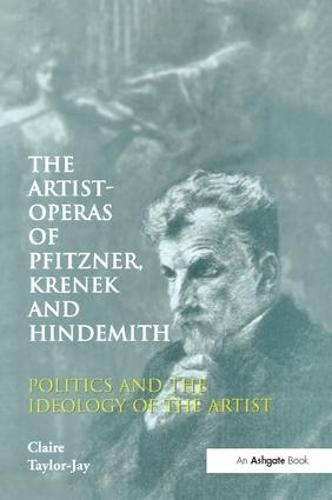Readings Newsletter
Become a Readings Member to make your shopping experience even easier.
Sign in or sign up for free!
You’re not far away from qualifying for FREE standard shipping within Australia
You’ve qualified for FREE standard shipping within Australia
The cart is loading…






This is the first book-length study of the genre of ‘artist-opera’, in which the work’s central character is an artist who is uncomfortable with his place in the world. It investigates how three such operas (Pfitzner’s Palestrina (1915), Krenek’s Jonny spielt auf (1926) and Hindemith’s Mathis der Maler (1935)) contributed to the debate in early twentieth-century Germany about the place of art and the artist in modern society, and examines how far the artist-character may be taken as functioning as a persona for the real composer of the work. Because of their concern with the place of art within society, the works are also engaged with inherently political questions, and each opera is read in the light of the political context of its time: conservatism circa World War I, Americanism and democracy, and the rise of National Socialism.
$9.00 standard shipping within Australia
FREE standard shipping within Australia for orders over $100.00
Express & International shipping calculated at checkout
Stock availability can be subject to change without notice. We recommend calling the shop or contacting our online team to check availability of low stock items. Please see our Shopping Online page for more details.
This is the first book-length study of the genre of ‘artist-opera’, in which the work’s central character is an artist who is uncomfortable with his place in the world. It investigates how three such operas (Pfitzner’s Palestrina (1915), Krenek’s Jonny spielt auf (1926) and Hindemith’s Mathis der Maler (1935)) contributed to the debate in early twentieth-century Germany about the place of art and the artist in modern society, and examines how far the artist-character may be taken as functioning as a persona for the real composer of the work. Because of their concern with the place of art within society, the works are also engaged with inherently political questions, and each opera is read in the light of the political context of its time: conservatism circa World War I, Americanism and democracy, and the rise of National Socialism.